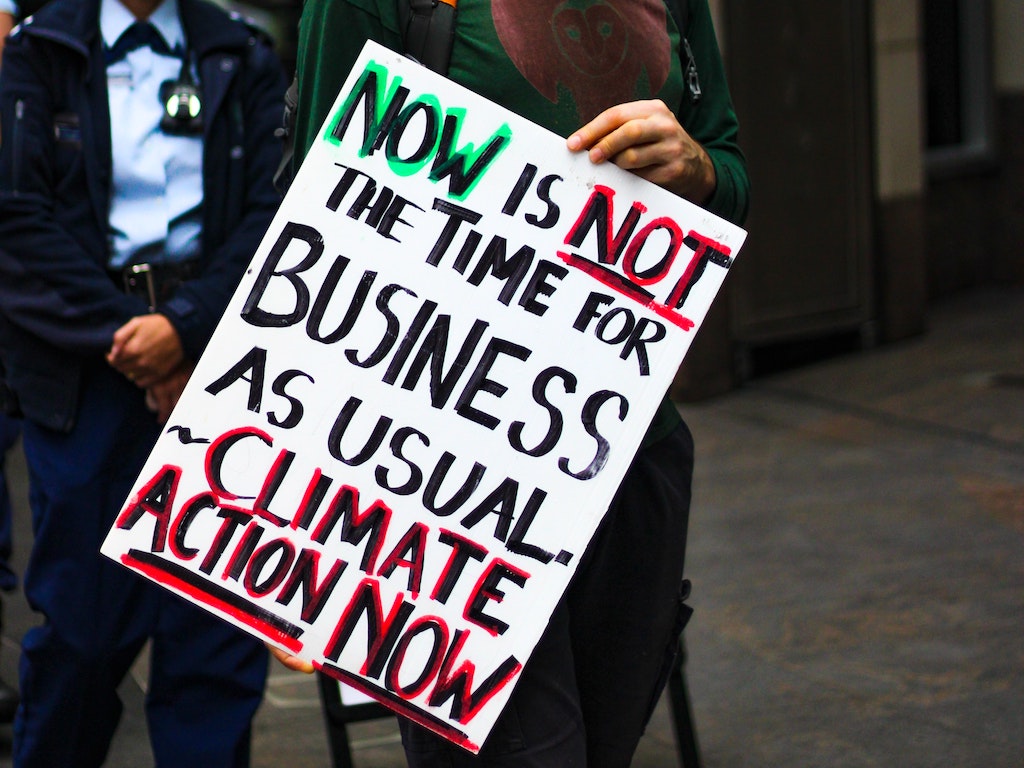4 Mins Read
Delegates from roughly 200 countries are currently gathered in Glasgow, Scotland, for the COP26 climate change summit. UK Prime Minister Boris Johnson has called the summit “the world’s moment of truth” when it comes to the fight against climate change as delegates get ready to announce their plans for cutting emissions by 2030.
In many cases, technological innovation will aid in those plans. BlackRock CEO Larry Fink underscored that point at another recent conference, the Middle East Green Initiative Summit, which took place last week in Riyadh, Saudi Arabia.
“It is my belief that the next 1,000 unicorns — companies that have a market valuation over a billion dollars — won’t be a search engine, won’t be a media company, they’ll be businesses developing green hydrogen, green agriculture, green steel and green cement,” he said at the event.

“A business opportunity”
As CNBC reports, Fink called climate change “a business opportunity,” and said he sees investor interest in putting money into climate-focused technologies.
“Getting to net zero carbon emissions by 2050 is going to require a revolution in the production of everything we produce, and a revolution in everything we consume. The process of creating fuel, food and construction materials, with all the needs that we have as humanity, it all has to be reinvented,” Fink said.
His words echo those of panelists on a briefing last month who said “an unprecedented level of change” is needed to stave off the worst consequences of climate change. Some of those consequences include catastrophic floods, tropical cyclones, and deadly heatwaves. Unicef notes that 1 billion children globally face “extreme” risk from such things and other impacts of climate change.
Phasing out coal, reducing our reliance on other fossil fuels, and curbing deforestation are all top priorities when it comes to staving off the worst impacts of climate change. However, realistically doing this will require sweeping changes both to the way businesses run and in turn the way all of us live our day-to-day lives.

Bringing down the cost of green
Innovation has to ideally bring down the cost of the “green premium.” Climate-friendly technologies are by and large more expensive than their traditional counterparts, making widespread adoption more difficult. Fink noted, for example, that sustainable aviation fuel costs “at least 140% more than kerosene.”
“Investments in low carbon projects in emerging markets will need to be more than a trillion dollars a year — more than six times the current rate of investments of about $150 billion a year,” he added.
Significant capital investments will drive the innovations in these low-carbon projects. Many large corporations, from Cathay Pacific to McDonald’s, have pledged to reach Net Zero emissions by 2050. These goals will require allocating financial resources to new processes and technologies that can enable this.

More than a task for public companies
Earlier this year, Fink also said large companies shouldn’t be the only ones on the hook for pushing the world towards addressing climate change.
“If we are truly trying to eliminate the threat of two or three degree increases in temperatures, it is not going to happen [if] we’re being dishonest with ourselves, and we think we get that just by asking a bunch of public companies to move forward,” Fink said. “We need boldness by governments — not just boldness by a couple CEOs, because we know our power to move the curve is very small … we need to do this together.”
BlackRock itself is a multinational investment firm that committed to Net Zero by 2050 in January of this year, and has a number of initiatives underway to make this happen, including a $600 million partnership with Temasek to invest in more decarbonization.
Lead image courtesy of Unsplash.



